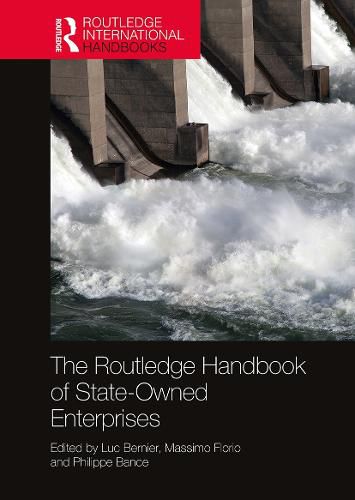Readings Newsletter
Become a Readings Member to make your shopping experience even easier.
Sign in or sign up for free!
You’re not far away from qualifying for FREE standard shipping within Australia
You’ve qualified for FREE standard shipping within Australia
The cart is loading…






State-owned enterprises make up roughly 10 percent of the world economy, yet they are woefully understudied. This handbook offers the first synthesis of the topic since the 1980s and offers a comprehensive reference for a generation.
The authors provide a detailed explanation of the theory that underpins the expansion of state-owned enterprises in the 21st century. Each chapter delivers an overview of current knowledge, as well as identifying issues and relevant debates for future research. The authors explain how state-owned enterprises are used in both developed and developing countries and offer an insight into complex and fascinating organizations such as the German municipal conglomerates or the multinational companies owned by states. New modes of governance and regulation have been invented to make sure they act in the public interest. This handbook brings together a wealth of international scholars, offering multiple theoretical perspectives to help shape a brave new world.
It will be of interest to teachers and students of Economics, Public Administration and Business, academics, established researchers and PhD students seeking rigorous literature reviews on specific aspects of SOEs, as well as practitioners and decision makers in international organizations.
$9.00 standard shipping within Australia
FREE standard shipping within Australia for orders over $100.00
Express & International shipping calculated at checkout
State-owned enterprises make up roughly 10 percent of the world economy, yet they are woefully understudied. This handbook offers the first synthesis of the topic since the 1980s and offers a comprehensive reference for a generation.
The authors provide a detailed explanation of the theory that underpins the expansion of state-owned enterprises in the 21st century. Each chapter delivers an overview of current knowledge, as well as identifying issues and relevant debates for future research. The authors explain how state-owned enterprises are used in both developed and developing countries and offer an insight into complex and fascinating organizations such as the German municipal conglomerates or the multinational companies owned by states. New modes of governance and regulation have been invented to make sure they act in the public interest. This handbook brings together a wealth of international scholars, offering multiple theoretical perspectives to help shape a brave new world.
It will be of interest to teachers and students of Economics, Public Administration and Business, academics, established researchers and PhD students seeking rigorous literature reviews on specific aspects of SOEs, as well as practitioners and decision makers in international organizations.